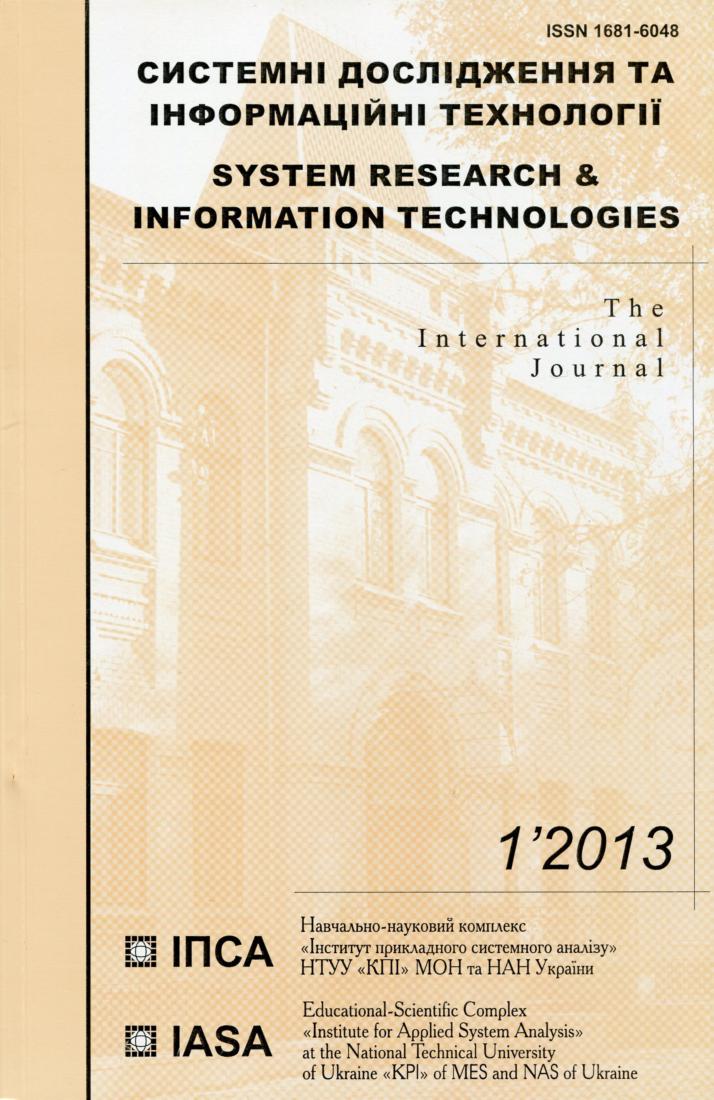Methodology of scenario construction of complex social systems development using morpho-logical analysis and SWOT-analysis. Part 2
Abstract
In this part of the work the example of application of methodology of construction of scenarios for the development of complex social systems, described in the first part of the work is considered. As a system for research the system of a heat supply of the average Ukrainian city is chosen. System of a heat supply is analyzed from the perspective of sustainable development. The results of the application of each step of the proposed methodology are described. On the basis of the analysis of the information collected on the heat supply system the analysis of its current state is carried out and the key variables of the system are chosen. Two key uncertainties are selected of the many driving forces, which influence on the system of a heat supply. For each of them two possible in the future states are determined. Thus the scenario space consists of four elements. Each of the developed scenarios is analyzed in detail on the internal coherence and impact on key variables, as well as the sustainable development of the system as a whole. The prospects of using the approach with the participation of representatives of the involved parties are considered. Such approach allows to improve the perception and efficiency of decisions which are accepted on the results of the scenario studies. The integration of this approach in the proposed methodology will contribute to the improve-ment of its applicability for the development of strategic decisions.References
Pereverza K.V. Metodolohiya pobudovy stsenariyiv rozvytku skladnykh sotsial'nykh system z vykorystannyam morfolohichnoho ta SWOT-analizu. Chastyna 1 // Systemni doslidzhennya ta informatsiyni tekhnolohiyi. — 2012 r. — # 4. — S. 124–137.
Ukraine. Energy Policy Review (2006), International Energy Agency (IEA). — http://www.iea.org/publications/freepublications/.
Modernization of the District Heating Systems in Ukraine: Heat Metering and Consumption-Based Billing. Report (2012), The World Bank. — http://siteresources.worldbank.org/UKRAINEINUKRAINIANEXTN/Resources/455680-1332179461564/UkraineDHreport2012e.pdf.
Market Assessment. Residential Sector of Ukraine: Legal, Regulatory, Institutional, Technical and Financial Considerations. Final report (2011), Worley Parsons, European Bank for Reconstruction and Development. — http://www.teplydim.com.ua/static/storage/files/files/Market_Assessment_Report_Final_Eng_Sep- 2011.pdf.
Ogilvy J., Schwartz P. Plotting Your Scenarios. — San Francisco: John Wiley & Sons, 1998. — 20 p.
The evolving Internet. Driving forces, uncertainties and four scenarios to 2025. — Cisco, GBN. — http://newsroom.cisco.com/dlls/2010/ekits/ Evolving_Internet_GBN_Cisco_2010_Aug.pdf.
Robinson J., Burch S., Talwar S., O’Shea M., Walsh M. Envisioning Sustainability: Recent Progress in the Use of Participatory Backcasting Approaches for Sustainability Research // Technological Forecasting & Social Change — 2011. — № 28 — Р. 756–768.
Quist J., Vergragt Ph. Past and Future of Backcasting: The Shift to Stakeholder Participation and a Proposal for a Methodological Framework // Futures — 2006. — № 38. — Р. 1027–1045.

